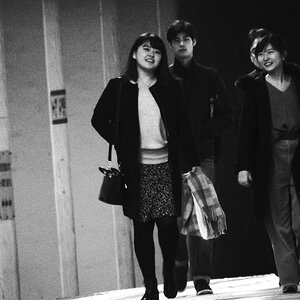soundwavephoto
TPF Noob!
- Joined
- Sep 5, 2011
- Messages
- 14
- Reaction score
- 0
- Location
- Buffalo NY
- Website
- www.soundwavedjandphoto.com
- Can others edit my Photos
- Photos NOT OK to edit
I usually shoot weddings by myself but one of my brides for next year is looking for a second shooter and I don't have any idea what is fair to pay them. What would some of you guys think is fair? Also I may want to send him out on his own if he does a good job. Then if I sent him out alone i am also wondering what is a fair rate. Any help is appreciated
Marie
Marie


 (I'm still happy to do it, but you really have to think of it in terms of how much you make per hour or you're fooling yourself)
(I'm still happy to do it, but you really have to think of it in terms of how much you make per hour or you're fooling yourself)
![[No title]](/data/xfmg/thumbnail/35/35669-485de67e98a042d63d728593720828a0.jpg?1619737091)









